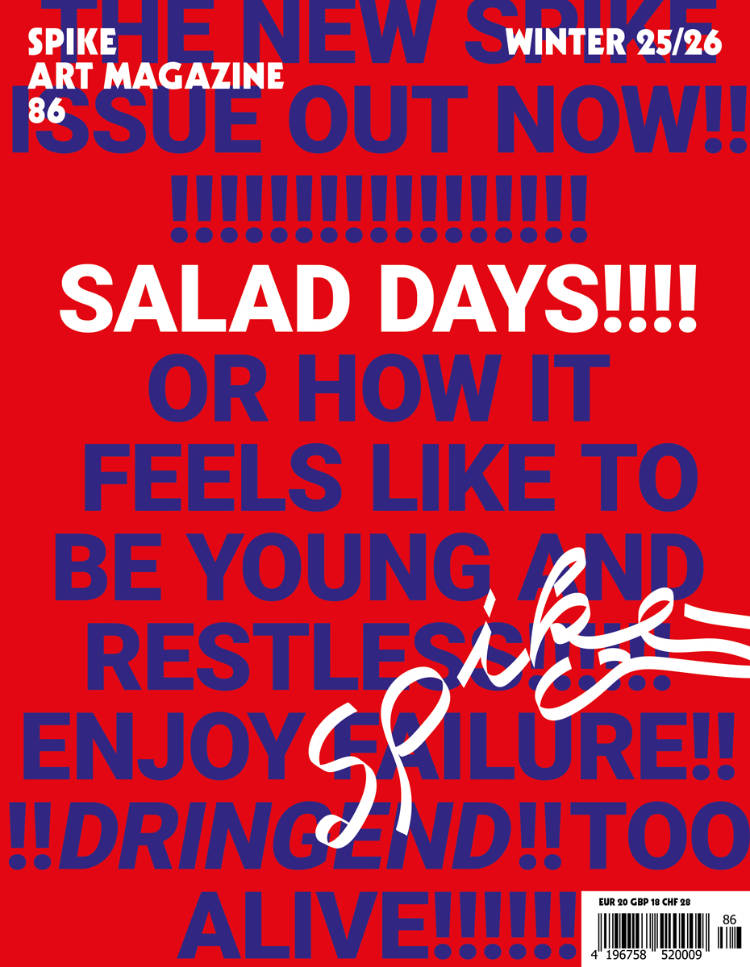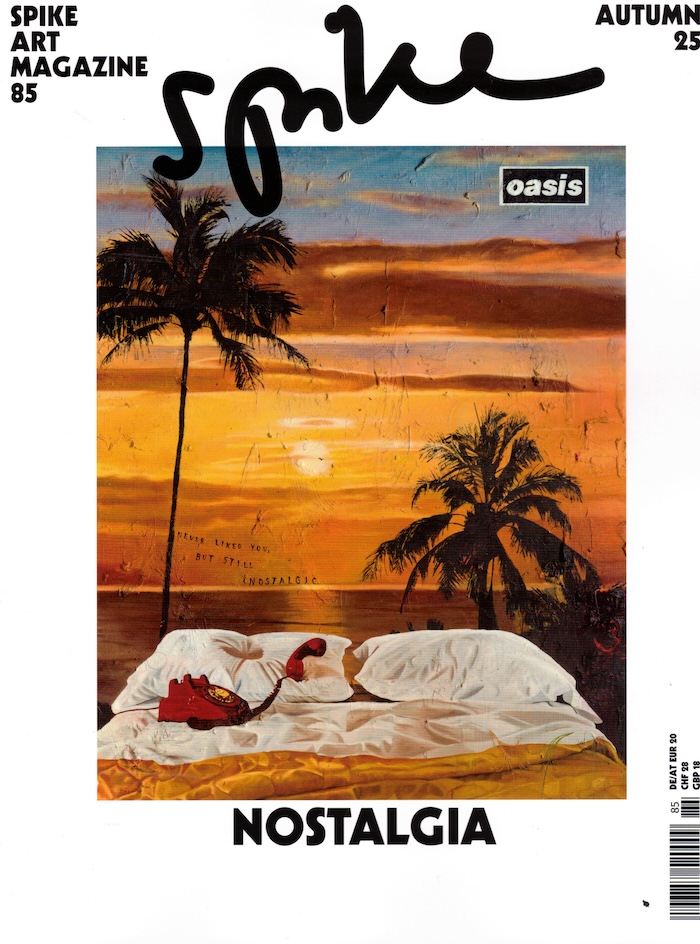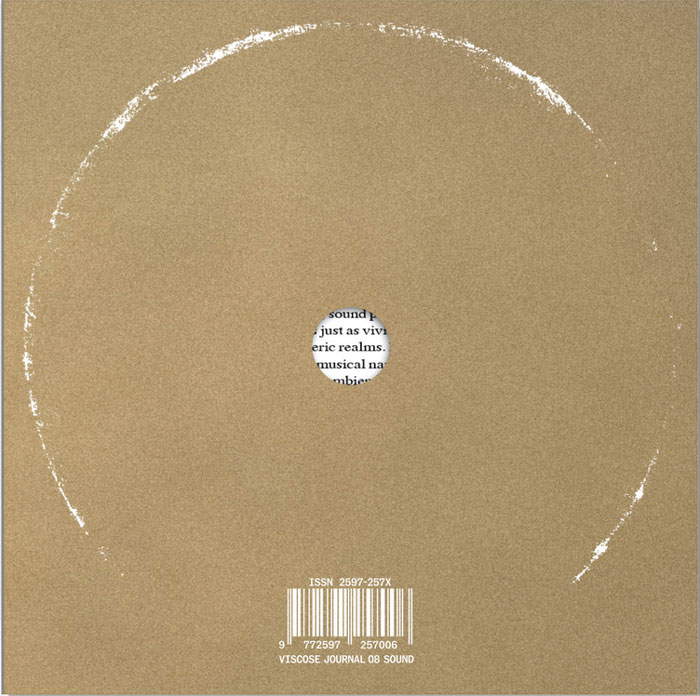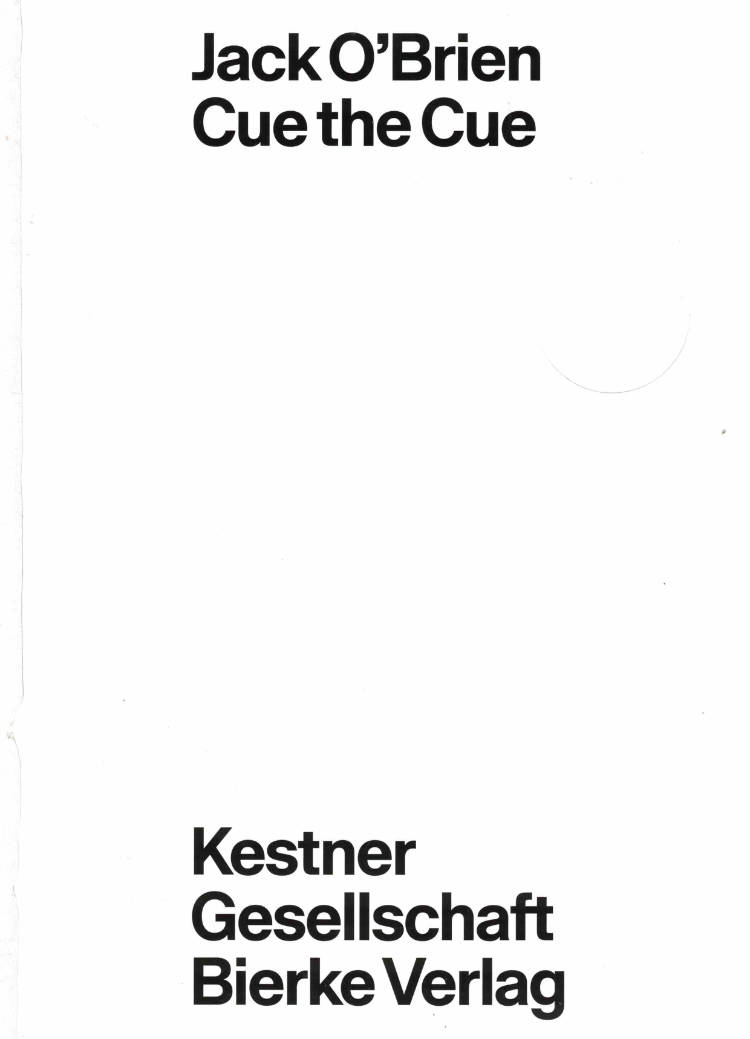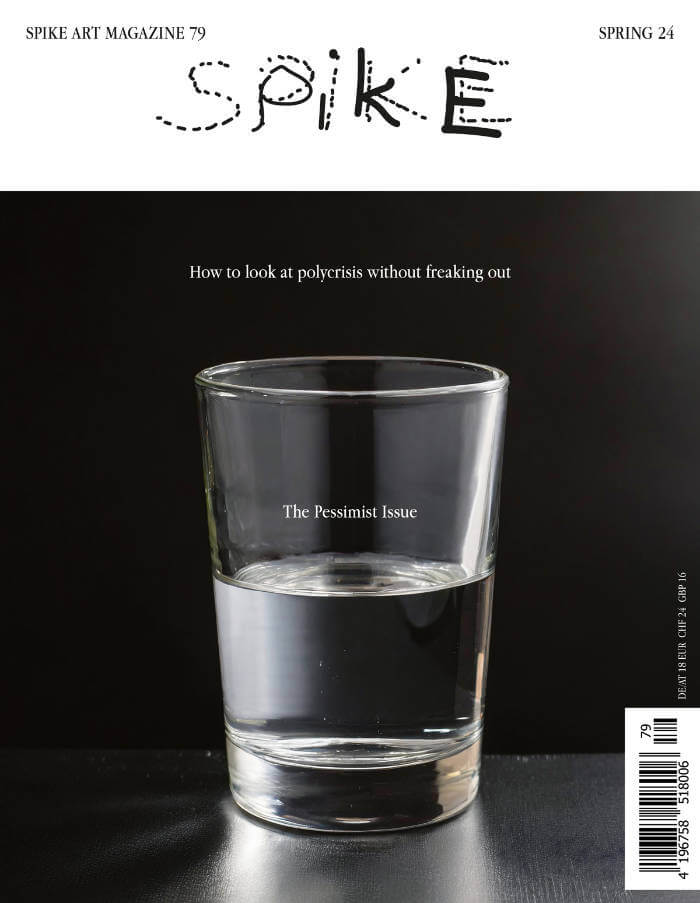
Spike #79 – The Pessimist Issue
Rita Vitorelli ed.
How to look at polycrisis without freaking out.
Eco ruin and refugeeism, illiberalization and inequality, hot wars and a New Cold War—the polycrisis hydra is always growing another head. But it's also a state of mind, an identity crisis brought on by paralysis and cognitive shock. Was it always like this, but with less media reach? Or is capitalism really burning itself out, just without any redemptive zest? The arts are expert at thematizing the woes that affect them—hello, Biennale and documenta—but maybe polycrisis is an instructive metaphor for what's breaking creativity: the commercial takeover of discourse, the bureaucratization of curating, and the dopamine highs of self-branding.
Maybe we're at a crossroads between recovery and death. But Spike #79 is clear-eyed about the fact that pessimists are never disappointed.
With Henrike Naumann, Shirin Neshat, Roberto Villanueva, Ben Davis, Mire Lee, Precious Okoyomon, Ivan Cheng, Nil Yalter, Anselm Franke, Anna Jermolaewa, Catherine Liu, Oliver Ressler, Morag Keil, Jeppe Ugelvig and many more.
Founded by the artist Rita Vitorelli in 2004, Spike (Spike Art Quarterly) is a quarterly magazine on contemporary art published in English which aims at sustaining a vigorous, independent, and meaningful art criticism. At the heart of each issue are feature essays by leading critics and curators on artists making work that plays a significant role in current debates. Situated between art theory and practice and ranging far beyond its editorial base in Vienna and Berlin, Spike is both rigorously academic and stylishly essayistic. Spike's renowned pool of contributing writers, artists, collectors and gallerists observe and reflect on contemporary art and analyse international developments in contemporary culture, offering its readers both intimacy and immediacy through an unusually open editorial approach that is not afraid of controversy and provocation.
